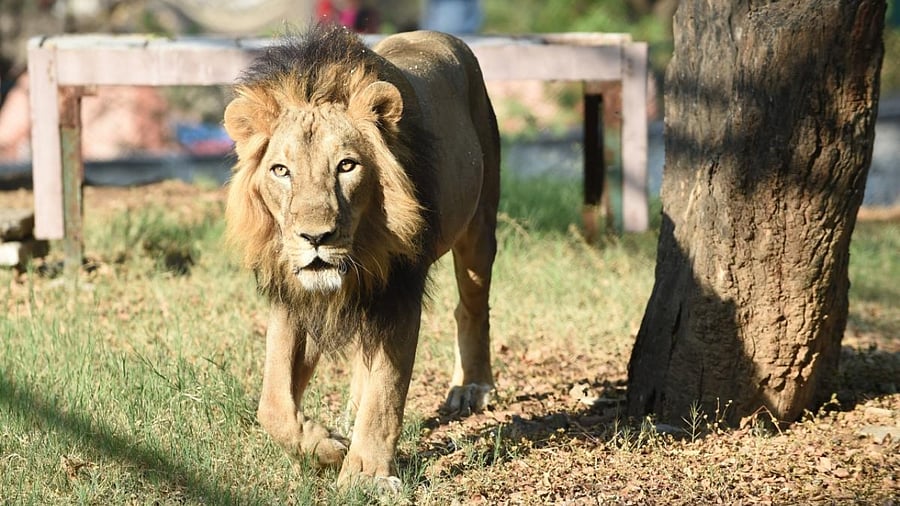
Lions can also be introduced into the Kuno National Park once the cheetahs brought from Namibia and South Africa stabilise and breed in their new home, renowned wildlife expert and nature conservationist Divyabhanusinh says.
Divyabhanusinh, who is also a member of the government's Cheetah Task Force for the animal's reintroduction, tells this in the updated version of his seminal book The End of a Trail: The Cheetah in India, published in 1995.
The new book, titled The Story of India's cheetahs, aims to arouse interest in the animal and its protection at a time when a cheetah reintroduction programme is underway in India.
The introduction of Asiatic lions into Kuno National Park (KNP) in Madhya Pradesh has been a highly debated topic. The Asiatic lion, found only in India, is currently restricted to the Gir National Park in Gujarat. In the early 1990s, the Indian government proposed the translocation of some lions from Gir to KNP, as a backup in case of a natural calamity or epidemic that could wipe out the entire population of lions in Gir.
However, the Gujarat government opposed the translocation arguing that it could lead to the spread of diseases that are not present in Gir, endangering the entire population of lions. It also said the lions are an important cultural symbol of Gujarat and moving them to another state would be disrespectful to the people of Gujarat.
"Kuno-Palpur was earlier identified as a second home for lions to be relocated from their last refuge in Saurashtra... Once the cheetahs stabilize and breed in their new home, lions can also be brought in.
"Success in establishing viable populations of both species would be a remarkable achievement and worth aspiring for-but the lions from Gujarat not arriving at Kuno-Palpur has nothing to do with the cheetahs' entry. The government of Gujarat has opposed the move since 1995 which is more than two decades ago," writes Divyabhanusinh.
Under the ambitious Cheetah reintroduction programme, Prime Minister Narendra Modi released the first batch of eight spotted felines - five females and three males - from Namibia into a quarantine enclosure at Kuno on his 72nd birthday on September 17 last year.
One of the Namibian cheetahs, Sasha, died due to a kidney-related ailment in March. Another cheetah, Siyaya, gave birth to four cubs and they were first spotted on March 29.
In a second such translocation, 12 cheetahs were flown in from South Africa and released into Kuno on February 18.
Divyabhanusinh argues that the controversy over African versus Indian cheetahs is "infructuous".
"Of all the large cats, the cheetah has been studied most minutely since the Middle Ages, and later in Asia, as it was used for coursing antelope. All the information we have of their behaviour, longevity and other details about them in the wild in India (from Indian and British records) and of the animals in their natural habitat in Africa, show little or no difference," the book says.
Divyabhanusingh says the cheetahs brought into India from Africa without tranquillisation or inoculation in the early 20th century did not bring any problems with them and they behaved exactly like Indian cheetahs in captivity and took to coursing wild Indian antelope just as they would have sprinted after the ones in Africa.
He says the cheetah existed all over India for millennia and the project did not envisage introduction of the species without a prior history in the country.
"The question of sub-species is in a flux. But to call the cheetah exotic is an absurd proposition," he writes.
Citing records, the book claims the last credible report of the animal in India was received from near Danto village in Jharkhand's Hazaribag in 1975 and the last cheetah in the Indian subcontinent was seen in 1997 in Pakistan's Balochistan.
It is widely believed that the last cheetahs in India were shot dead by Maharaja Ramanuj Pratap Singh Deo of the erstwhile state of Korea in Koriya district of present-day Chhattisgarh in December 1947.
The species was declared extinct in the country in 1952.